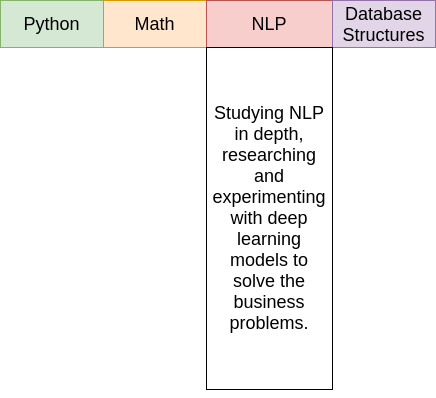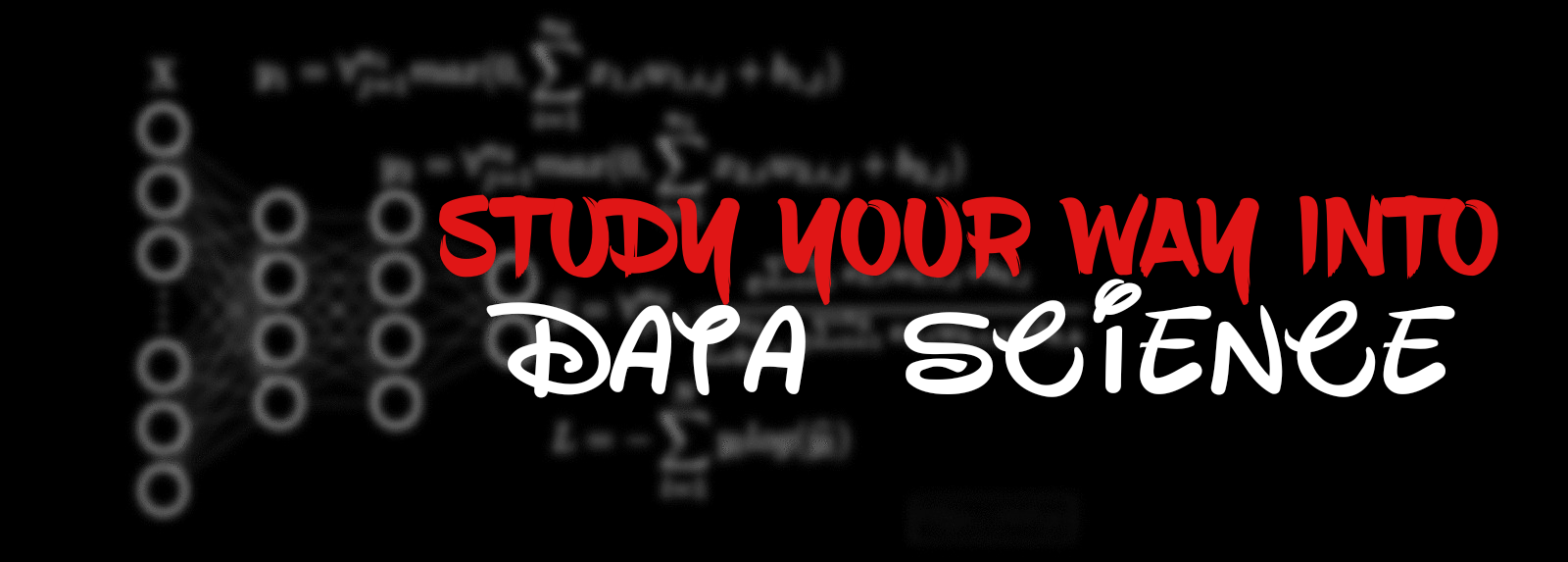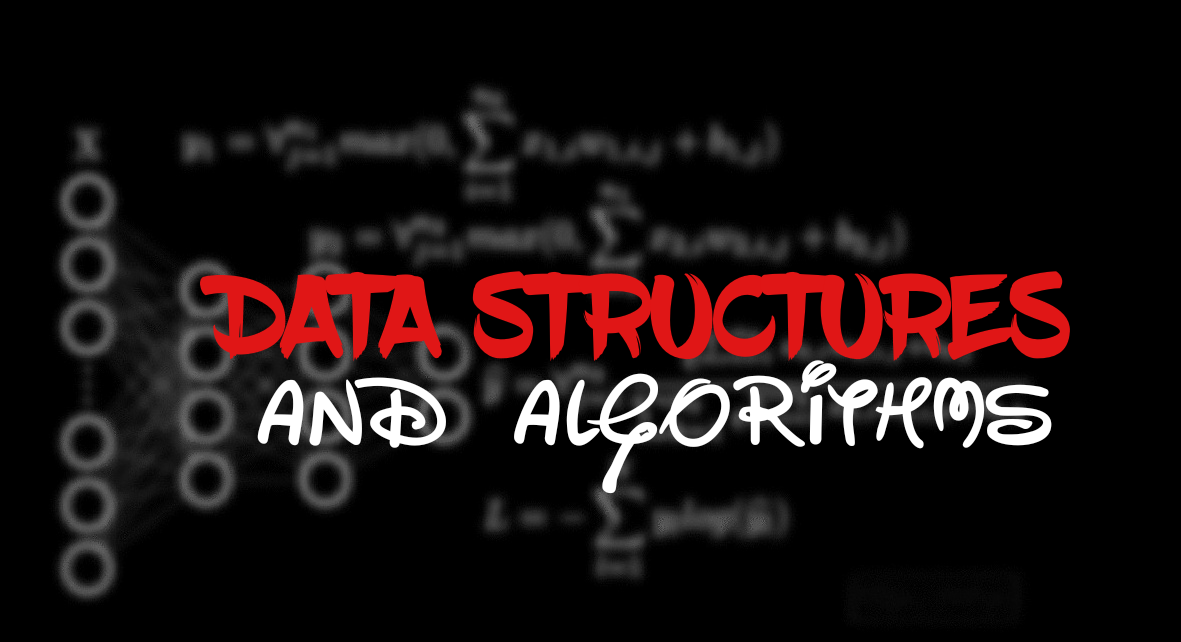How to study your way into Data Science
Hello there, this post is a bit different than my usual technical posts. I have been asked questions like “How do I enter into Data Science?” so many times that I finally decided to share my thoughts on the topic on the blog. By no means do I claim that these are the absolute answers to the questions, but merely a projection of what I learnt during the process of becoming an AI Engineer.
How to enter into Data Science?
My answer has remained the same since the first time I was asked this question - STUDY. I am aware that is an incomplete answer. But, I feel, it is the most crucial step to enter into the field of Data Science.
To make more sense out of the answer let me explain futher. The field of Data Science and AI are made out of building blocks like Math, Stats, Coding, Algorithms etc. Now of course, a beginner will not know about every subject mentioned, but as you grow in the field you are expected to have at least some knowledge in multiple verticals. In this lecture prof. Andrew Ng suggests the T model, where you understand multiple concepts at a higher level but dwell into depth in one particular vertical.
Now, for example, as an AI Engineer working on the language team I am expected to have knowledge in four verticals(not exhaustive) - Math, Python Coding, NLP and Knowledge of Database Management.

To make it clear, I don’t claim to have great knowledge in NLP. I, just like you, am a learner, barely scratching the surface of such a vast topic. But as you can see unless you have a strong inclination towards studying and learning new concepts consistenly it is very difficult to sustain yourself in this field. However, please do not get deterred by the enormity of the knowledge in front of you, start small and dabble into various verticals before choosing a specific one.
Of course, to become a Data Scientist or AI Engineer or ML Engineer you need a plethora of other ingredients in your menu, including but not restricted to - ability to explain the concepts(especially if you’re working with a non-technical clientele), problem solving capacity, some projects under your belt, Luck etc.
How and What to study?
As I said earlier start small and explore various topics. To help you with that here’s a compilation of the resources I came across during my journey. These resources are in no particular order and by no means exhaustive. I hope you find them useful and are able to make the best out of them.
Please note that the resources mentioned below are/have been used by me. I am sure there are many other available resources and perhaps better than once I mentioned, I would love to hear more from you guys.
Syllabus references -
It is quite daunting to think about all the things that you have to learn, I felt intimidated to a great extent when I started off my journey in this field and to be honest I feel the same even now. But there’s a way to beat this feeling, usually from what I have seen when self-learning it’s best to devise a syllabus of your own so that things don’t go messy, here are a few links to decide on that.
The process of deciding the syllabus and the path to be followed won’t happen in just one day. Also, above links will only help you figure out what portion you have to cover. Best resource to learn, which I would highly recommend, is a video course supplemented by few other things.
Video Lectures
There are amazing video lectures available for various subjects. Here are a few of them:
Machine Learning
- Machine Learning couse - by Andrew Ng
- Machine Learning with python by Youtuber Sentdex
- Machine Learning with python - by Youtuber Tech with Tim
- Machine Learning Tutorials by Greyatom
Deep Learning
Natural Language Processing
- CS224N: Natural Language Processing with Deep Learning
- Natural Language Processing Specialization by deeplearning.ai
Python
- Python for Everybody Specialization on Coursera
- Python Programming Tutorials on youtube channel Tech with Tim
Algorithms and Data Structures
- Algorithms Specialization by Stanford University
- Data Structures and Algorithms by CS Dojo
- Algorithms Part 1 & 2 by Princeton University
- Data Structures And Algorithms In Python by codebasics
YouTube channels
YouTube videos are supplementary to what you’ll learn in the courses or books.
- Bhavesh Bhatt - Machine learning and stats concepts.
- 3Blue1Brown - Beautiful videos explaining math.
- Lex Fridman - AI podcast with some terrific interviews.
- codebasics
- ForrestKnight for general SWE concepts and trivia.
- And last but not the least, a special mention to the channel AIEngineering by Srivatsan Srinivasan, which I recently started following but a big fan already!
Books
Books are extremely help when you want to go into math of how things are working. Here are a few books which I refer time and again -
- Deep Learning - Ian Goodfellow, Yoshua Bengio and Aaron Courville
- Introduction to Machine Learning with Python: A Guide for Data Scientists - by Andreas C. Müller
- Machine Learning with python cookbook - Chris Albon
- Python Crash Course, 2nd Edition: A Hands-On, Project-Based Introduction to Programming - by Eric Matthes
- Linear Algebra and it’s applications - Gilbert Strang
- The Imposter’s Handbook by Rob Conery (An amazing book on the concepts of CS for people with non-CS background)
Podcasts
Listening to podcast is perhaps the best way to revise when travelling. I follow all the below podcasts on Google podcast app.
- Data Skeptic
- Linear Digressions
- Machine Learning - Software Engineering Daily
- DataFramed
- Machine Learning Guide
Few other resources
These are the resources I refer to understand a specific concept in detail or perhaps for recent updates in the world of AI.
- Google AI
- Blog byAndrej Karpathy
- Blog by Sebastian Ruder
- Machine Learning mastery by Jason Brownlee
- Sebastian Raschka
- Blog by Christopher Olah
- Facebook AI
This list will keep expanding, I look forward to hear from you guys as well. All the Best!



Leave a comment